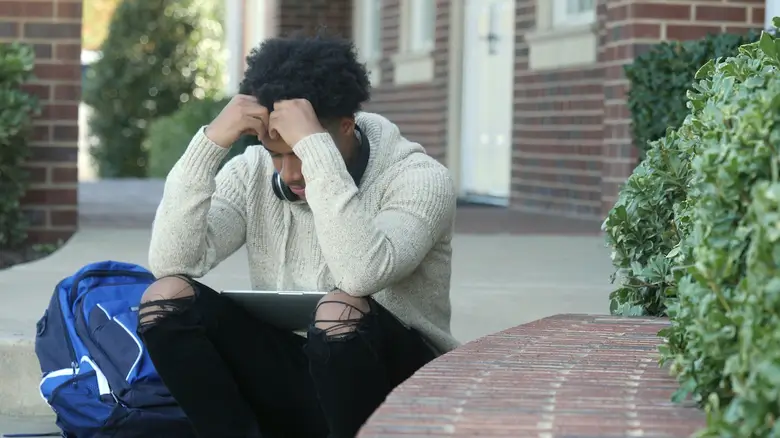Can Failing Community College Student Start Again With A Clean Slate?

I am about to finish my first year as a community college student and it hasn't been going well. I am pretty sure I will fail French, and last semester I failed English. The reason I went to community college is that I couldn't get into my first choice when I was in high school due to low SAT scores. At the time, I did get into my safety but I really didn't want to go there. But now I bet I couldn't even get into my safety anymore as a transfer because my community college grades are so bad. I feel like I made the wrong choice and should have just gone to the safety. Is there a way to start over somehow? Community college is supposed to erase high school performance and I need a way to erase my community college stats.
I'm sure your situation is stressful, but — if it's any comfort to you — it's far from unique. Many students have struggled with the transition from high school to college, including to community college, and would love to get a do-over and start a new school with a clean slate. Unfortunately, however, that can't happen. If you were to reapply to another college, including the “Safety" school that admitted you last year, but without revealing that you've already been enrolled elsewhere, you would be setting yourself up for serious trouble. In all of your future applications, you will be expected to disclose EVERY college in which you were ever enrolled. I've heard horror stories over the eons about students who didn't come clean about past college experiences because they wanted to begin fresh, but then they got caught — sometimes shortly before graduation — and were expelled!
So that's the bad news. However, there's good news, too. Admission officials can be very understanding about situations like yours. They often give some “wiggle room" to applicants who had a rough beginning, like you did. BUT ... in your future applications, you will need to explain why you think you did so poorly at your current school. And before you can explain this, you need to figure it out yourself. Are you completing your assignments thoroughly or blowing them off? Do you devote adequate time to studying ... or are you not even sure how to study? Do you think you might have a learning disability but haven't been tested? Are you struggling with problems at home or elsewhere in your personal life? Are you working long hours in a job or devoting too much time to extracurricular pursuits?
Now is the time for some serious introspection. If you can figure out what has led to your poor grades, it will be easier to not make the same mistakes again and to explain your failures to admission committees while providing assurances that you won't repeat them now that you understand their cause.
“The Dean's" advice to you is to spend another year at your community college as you try to determine where you got in trouble this year. Speak to a school counselor or even an outside therapist, if you feel you could benefit from someone else's opinion about your failures and/or to help you deal with family problems, personal problems or time management. Take advantage of the academic support department at your school (each college has one) where you can get help with study skills, test preparation, essay-writing, etc. Consider testing if you suspect that a learning disability is the culprit.
Finally, if you are having trouble focusing on your studies because they simply don't interest you, perhaps you should take an alternate path. Many students are programmed to go to college from practically the day that they start kindergarten, but the classroom isn't the right spot for everyone. You might be happier joining the workforce now or pursuing training in such fields as culinary arts, cosmetology, carpentry, computer technology, etc.
You can always return to college down the road. But if or when you do, be careful to report all the previous schools you attended, including your current one, no matter how poorly you have done and how much you wish you could start from scratch. Again, you are certainly not alone, but many others in your shoes won't learn from their mistakes. If you are able to do this, you will be able to improve your grades next year and explain your setback to admission officials who may be willing to give you another chance when it's time for you to transfer.
******
If you'd like to submit a question to College Confidential, please send it along here.
